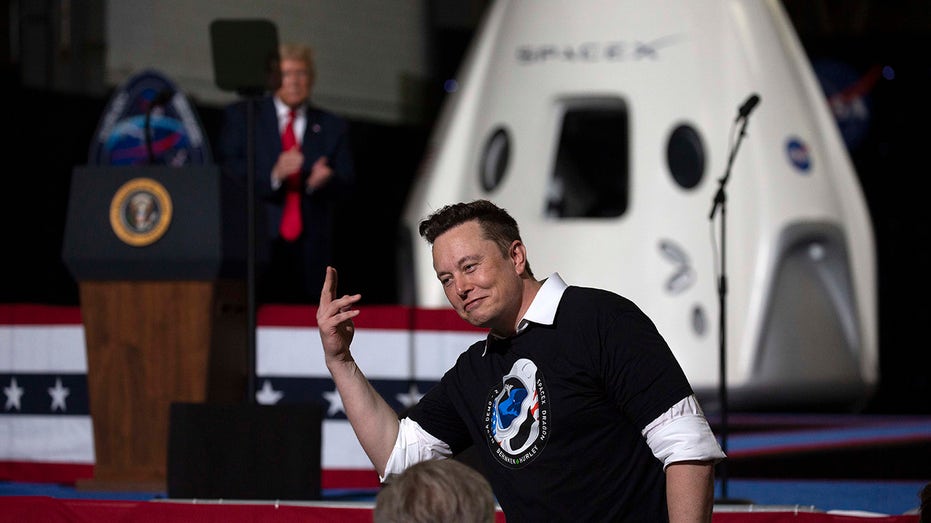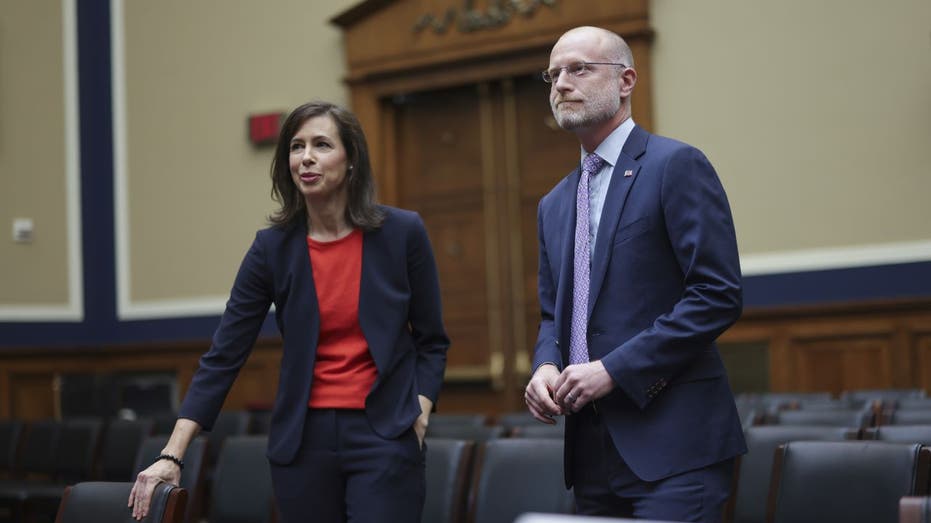The decision last year by the Federal Communications Commission (FCC) to reaffirm its revocation of an award to SpaceX’s Starlink to help connect rural homes and businesses to the internet is drawing criticism in the wake of the FCC chair’s call for more competition against Starlink.
FCC Commissioner Brendan Carr told FOX Business in an interview, “You have an agency that in 2023 says that Starlink is not reasonably capable of providing high-speed internet. And then in 2024, they’re saying it’s so capable of providing high-speed internet that we’re going to toss the word monopoly out there. There’s just no way to sort of, I don’t think, square what’s going on here with a fair application of the law or the facts, it just looks like partisan politics in my view.”
“I’ve got no problem with anyone saying we need more competition, I’m for more competition. But I think it crosses the line when you just casually float the word monopoly out there,” Carr said. “Was it said that they are a monopoly? No, but the word monopoly was used in the same speech as saying we need more competition with Starlink.”
FEDERAL COURT BLOCKS NET NEUTRALITY RULES IN BLOW TO BIDEN AND INTERNET ACTIVISTS
Four years ago, the FCC launched an initiative that awarded grants to expand high-speed internet access around the country, with SpaceX’s Starlink winning an $885 million award to connect over 640,000 homes and businesses. The agency rescinded the award in 2022, arguing Starlink wouldn’t be reasonably capable of meeting program requirements, and reaffirmed that decision in Dec. 2023.
When that decision was reaffirmed last year, FCC Chair Jessica Rosenworcel said the “FCC followed a careful legal, technical and policy review to determine that this applicant had failed to meet its burden to be entitled to nearly $900 million” in funds under the program. However, Rosenworcel is now raising concerns about Starlink’s market position in providing internet service via satellites and cited issues with monopolies.
Rosenworcel said at a conference last week that Starlink has “almost two-thirds of the satellites that are in space right now and has a very high portion of internet traffic… Our economy doesn’t benefit from monopolies. So we’ve got to invite many more space actors in, many more companies that can develop constellations and innovations in space.”
She went on to say that “every communications market that has competition is strong, we see lower prices and more innovation, and honestly, space should be no exception.” Rosenworcel added that the FCC is helping new entrants understand how the agency works and handles license applications: “Outreach has really become a part of our ongoing effort here, because we know there’s going to be a whole bunch of new players in the space economy.”
SPACEX CREW RETURNS TO EARTH AFTER 5-DAY TRIP, WORLD’S FIRST COMMERCIAL SPACEWALK

Carr explained that he and the FCC’s other Republican-appointed commissioner dissented from the FCC’s revocation of Starlink’s grant and noted that the decision followed President Biden saying in Nov. 2022 that SpaceX founder and CEO Elon Musk’s relationships with other countries were “worthy of being looked at.” He said that has led to an “unprecedented campaign of regulatory harassment” that the FCC has joined other federal agencies in with its decision.
“The real loser here is rural America,” Carr explained. “We’re now planning on spending billions and billions of dollars to try to get high-speed internet service to those same, or some of those same, locations – we’re doing it spending dollars on the penny.”
FCC COMMISSIONER HITS BIDEN ADMIN FOR $42 BILLION IN UNSPENT HIGH SPEED INTERNET FUNDS

“We’re taking taxpayer dollars to try to extend internet services to parts of the country when we could’ve taken care of it had we simply stuck with that Starlink deal. The Starlink deal was basically $1,300 per location in government support… Now you’ve got cases where the government is spending in the ballpark of, and in some cases in excess of, $100,000 per location to build out fiber high-speed internet to these locations,” he said.
“Look, there’s some really expensive parts of this country to serve and so if you’re building fiber to those places I can see why those numbers would make sense,” Carr explained. “But when you have other technologies, we should be pursuing it in a technology-neutral manner and being good stewards of the taxpayer dollar. But it seems to me that that concept is being disrupted here based on going after Elon Musk.”
Carr said that the U.S. should be supporting SpaceX’s Starlink and its emerging competitor, Amazon’s Kuiper, to counter the growing influence of China’s satellite companies given the Chinese Communist Party’s ability to fund a rival that could spread its totalitarian approach to content moderation and censorship around the world.
“What the American government should be doing right now is doing everything we can to give Starlink, to give Kuiper, to give every other U.S.-based internet provider wind at their back to continue to extend their lead over the CCP as the CCP stands up their competitors,” Carr said.
FOX Business reached out to the FCC regarding Rosenworcel’s comments about Starlink and her monopoly concerns.
Read the full article here

